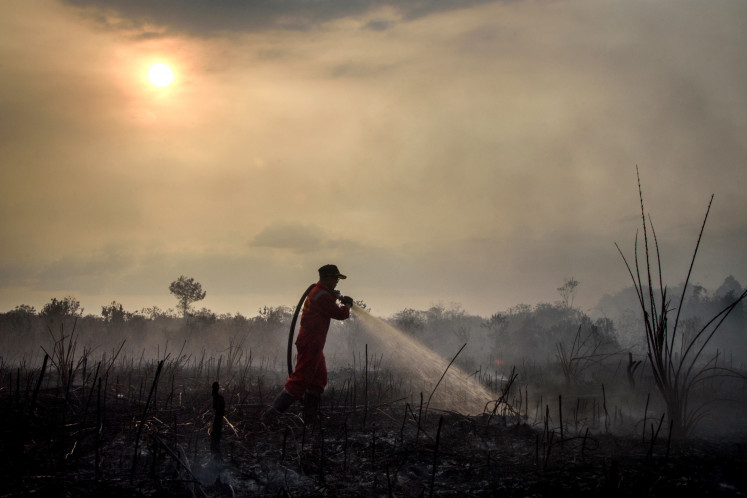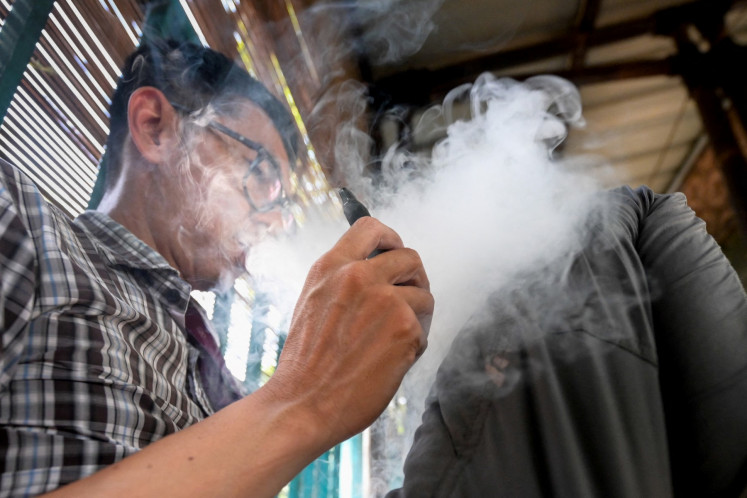Popular Reads
Top Results
Can't find what you're looking for?
View all search resultsPopular Reads
Top Results
Can't find what you're looking for?
View all search resultsBMKG expects Indonesia's dry season to be less severe this year
Last year's dry season was the most severe since 2019 due to an El Nino weather phenomenon that lasted longer than usual, bringing a drought that hurt crops and exacerbated forest fires.
Change text size
Gift Premium Articles
to Anyone
D
ry season will be less severe this year in Indonesia compared to 2023, improving its chances of managing forest fires and crops, the The Meteorology, Climatology and Geophysics Agency(BMKG) said on Friday.
Last year's dry season was the most severe since 2019 due to an El Nino weather phenomenon that lasted longer than usual, bringing a drought that hurt crops and exacerbated forest fires.
More than 1.16 million hectares (2.86 million acres) of forests burned last year, the most since 2019 and more than five times the 204,894 hectares that burned in 2022, according to data on the environment ministry's website.
"The dry season this year is not as dry as last year. Also, forest fires will not be as severe as last year. But we still need to anticipate the risk of forest fires especially in provinces that have peatlands," Ardhasena Sopaheluwakan, deputy of climatology at the BMKG, told reporters.
Riau, South Sumatra, Lampung, Jambi, South and Central Kalimantan provinces are prone to forest fires, he said. Those provinces are also home to large palm oil plantations.
The dry season will start later than usual in May and June for the island of Java and parts of Kalimantan and Sulawesi, and it will peak in July-August, BMKG's head, Dwikorita Karnawati, said.
From September, the weather will start to be affected by a weak La Nina weather pattern, BMKG said. A La Nina pattern typically brings more rainfall to the archipelago.
Last year's El Nino pattern had an impact that stretched into 2024, with planting delays causing early-year rice harvests to slump, although agriculture authorities have said food production is expected to recover later this year.
Some areas in Sumatra and Java are currently being hit by floods amid heavy rains. At least 30 people were killed and 70,000 displaced due to floods and landslides in West Sumatra last week.











